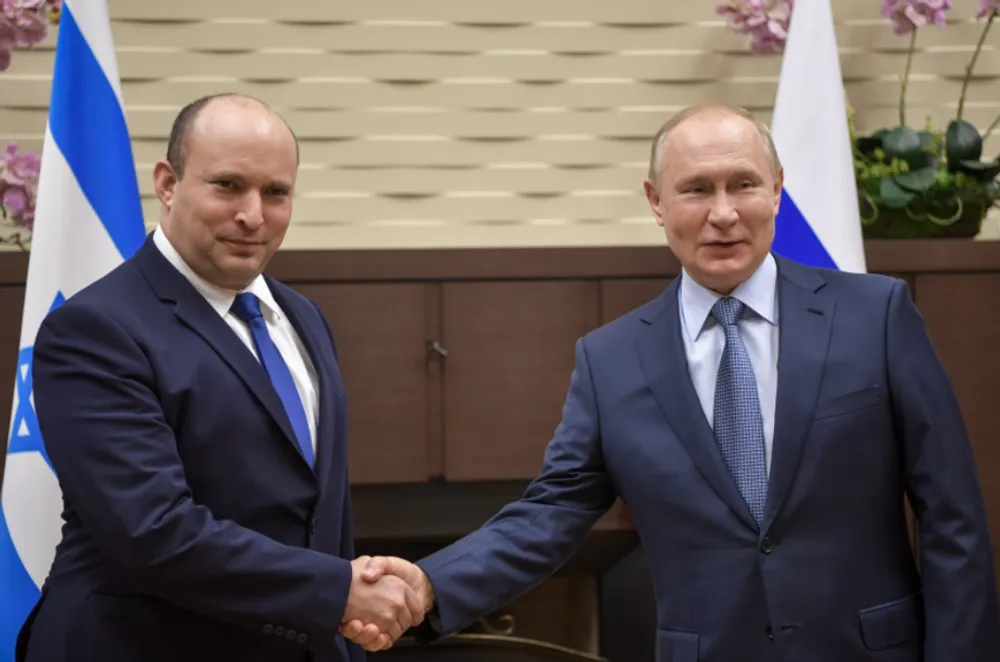Finally, the article signed by the famous American author Paul Craig Roberts “WILL WAR RESULT FROM THE EVER HESITANT PUTIN?” published on January 22 this year breaks the pattern of the false dichotomy, of the conflict between the two dominant narratives, that accompanies the controversies between Russia and the West[1].
While Western propaganda centers demonize Putin, those in the alternative media, who oppose American hegemony, deify him. The latter do it either out of naivety and a lack of understanding of the way political power in Russia is organized and works, or out of pecuniary interest, preferring to be presstitues of the Kremlin with a mask of anti-globalist respectability.
Paul Craig Roberts' analysis breaks through the propaganda clichés described above, showing what is obvious to any lucid and honest observer. Despite the image of him as a dictator and a determined person, Putin presents himself as hesitant, timid and above all obsessed with the need to regain recognition from “Western partners”. This syndrome is easy to understand if we focus on the ideological or intellectual origins of “Putinism”. This vision is an eclectic one, representing a mixture of late Sovietism and Western liberalism.
The Two Faces of the Moscow Janus: Sovietism and the Merchant Spirit
His unwillingness to achieve clear and unequivocal decommunization by condemning the 1917 coup d'état, glorifying Stalin, keeping Lenin's mausoleum and the communist names of regions, cities, streets and public squares as precious religious relics, maintaining Lenin's monuments and those of the other Bolshevik criminals, as well as the “founders of Marxism”, show beyond any doubt that the Putin regime is hostage to the communist mentality as a chronic disease of Russian society.
The second face of this two-faced Russian god as a new Janus is a quintessentially liberal-capitalist one. Or, more precisely, it belongs to the liberal ideological injection that poisoned Russian society with the fall of the USSR. The new elites that emerged from elements of the former communist nomenklatura and KGB were and are guided by the thirst for personal enrichment through the abuse of power. The mercantile mentality penetrated deeply the Russian ruling class, every dignitary in the Putin administration being hyper-wealthy through the complicity of the oligarchs who capture all of Russia's natural resources for personal profit.
In this case, we should bear in mind the biblical truth which says
“No one can serve two masters. Either you will hate the one and love the other, or you will be devoted to the one and despise the other. You cannot serve both God and money. (Matthew 6:24)
Applied to the Putin administration, Werner Sombart's definition of two types of characters and civilizations ― “Merchants and Heroes” ― unequivocally suggests its merchant profile. It seems that in the new geopolitical conditions the conception of geopolitical dualism of tellurocracy and thalassocracy proves that the Sea Power, the Anglo-Saxon commercial civilization, has definitively colonized the ruling class in Russia. And the conceptualization of the Land Power, attributed to today's Russia, is only part of the propaganda clichés of the Kremlin servants.
This explains the hesitant nature, the lack of determination and coherence of official Russian policy under Putin's mandate. Moreover, as in the West, the same major transformation that characterized the rise of capitalism took place in Russia. Namely, the economic factor subordinated the political factor, or, in other words, big business subordinated the state administration. However, in today's conditions the myth about the all-powerful Putin benefits both Western and Moscow propaganda.
The oscillating character and susceptibility to various influences that make Russia's interests vulnerable also appears in the case of genocide and systematic crimes committed by the Zionist entity officially called Israel.[2] This lack of consistency has caused natural concerns and reactions of bewilderment in the Islamic world, the key question being the extent to which Russia can be a strategic partner in resisting Israel and its vassal the US.
Multipolarity as a desirable reality
The author quoted above is right when he suggests that multipolarity is totally irrelevant ''as long as it does not possess a solid military component. Paul Craig Roberts states that “The multipolar world that Putin is always talking about cannot materialize without a Russian-Chinese-Iranian mutual defense treaty”. And he is absolutely right. It's just that China doesn't seem to have any interest in accepting such a thing, preferring to simultaneously benefit from the huge advantages offered by the US and EU markets for its goods and from squeezing Russia's natural resources. Instead, Iran, like a whole series of other Muslim countries, would without hesitation sign political-military accords with Russia to resist the aggression of the London-Washington- Jerusalem axis.
Besides, among those wishing to urgently sign such pacts of mutual military assistance with Russia could be a whole series of other African states, Venezuela, North Korea, etc. But, obviously, for such a spectacular geopolitical turn, only one element is missing: the political will of Moscow.
It is opportune to mention here that in order to represent a formidable force in the face of Western hegemony, BRICS cannot limit itself to trade and the noble intention of de-dollarization. To overcome the posture of an amorphous structure and represent a pole of real geopolitical power, BRICS vitally needs a solid military component. Otherwise, it would be naïve to believe that the US imperialist system will impassively await its own collapse without a pre-emptive strike. The economic war that BRICS has proposed against Israeli-American imperialism cannot be won without relying on a strong military alliance.
The conflict with Ukraine: Giveaway game, puerility or cowardice?
In his article Roberts describes with maximum accuracy the same wavering and feeble approach of Putin towards the military conflict in Ukraine. We could add to what the author said, that until now no one can give a credible explanation, and especially one that would honor the official position of Moscow, as to why after the coup in Kiev in 2014 it was initially declared an illegal regime installed by violence and a usurpation of state power, after which they resorted to recognizing the Poroshenko regime. Another strange thing in 2014 was the agreement of Crimea to join Russia, while abandoning Donbass ― although both in the peninsula and in the self-proclaimed republics of Donetsk and Luhansk, referendums on accession to Russia were organized.
The eight years of methodical bombardment and mass assassination by the Kiev regime of the peaceful population of Donbass was possible only because Putin did not have the courage or perhaps the freedom of action to prevent this massacre of Russians. And after two years of war in Ukraine, the residents of the city of Donetsk continue to be killed en masse by regular bombings carried out by the Ukrainian military. [3] How to explain such a state of affairs? This is an important question because only by anathematizing the criminal regime in Kiev can this massacre be stopped. What is needed is not words of compassion for the victims and the critics of Zelensky, but concrete action. But these are delayed for increasingly suspicious reasons.
After a strange break of 8 years, the moment of Russian intervention on February 24, 2022 remains equally inexplicable. This does not mean that the “collective West” is not conducting a proxy war against Russia, turning Ukraine into an object of geopolitical manipulation. The question is different.
Why did the extremely quick and successful offensive of the Russian army, which reached the gates of Kiev in three days, turn into a catastrophic failure? Why was the withdrawal ordered? Why were entire regions such as Kiev, Sumy, Chernigov, Kharkov and Kherson abandoned? And who is responsible for the tens of thousands of Russian civilians in those territories, who supported the Russian offensive, and who were tortured and murdered by the criminals in the Ukrainian military units?
Two magic words, a blitzkrieg and a series of failures
And now let's ask ourselves what the two magic words, used by Putin to explain the goals of the military intervention in Ukraine, might mean. I refer here to the famous words “demilitarization” and “denazification”. Initially both Russia's supporters and its opponents believed it was about the full liberation/occupation of Ukraine by the Russian military, the complete dismantling of the Ukrainian armed forces, the removal of political power and the imposition of surrender conditions. And it was normal to expect such a thing,because ”demilitarization“ would have assumed the total abolition of the Ukrainian army, and “denazification” would have meant holding accountable those whom Kremlin propaganda calls “Nazis”. In fact, they can be called Nazis only to the extent that Zionism is assimilated to Nazism. But the Putin administration is too heavily influenced by Zionist elements to be able to afford such a degree of freedom of expression.
So, instead of a blitzkrieg, for two years we have been watching the withdrawal of the Russian armed forces, limited offensives accompanied by astronomical human losses without any strategic justification, prisoner exchanges under unfair conditions and, above all, calls for negotiations and the signing of a armistice. The series of negotiations that began on the very third day after Russia's military intervention shows the absurdity of the whole military adventure. So your army arrives near Kiev, and you do not impose the conditions of capitulation from positions of strength, but order the retreat of your forces and sit down at the negotiating table in an infinitely more vulnerable position.
A limited war, euphemistically called a SMO and an untouchable enemy
An extremely eloquent episode that shows how Putin's character is related to his promise to former Israeli Prime Minister Naftali Bennett not to cause any harm to Israel's puppet in Kiev, the Zionist Volodymyr Zelensky. On February 5, 2023 NBS News titled this fragment of the interview given by Naftali as follows: “Former Israeli Prime Minister Naftali Bennett says Putin promised not to kill Zelensky”.[4] Strange as it may seem, after the publication of these claims in the international press Moscow officials did not rush to deny them. And then what is the logic of this war? Doesn't a much stronger side militarily want to defeat its enemy and achieve a total and indisputable victory? If not, then why? We can assume a number of factors: Putin's cowardice and the influence of “the fifth column”. The rest is propaganda and manipulation.
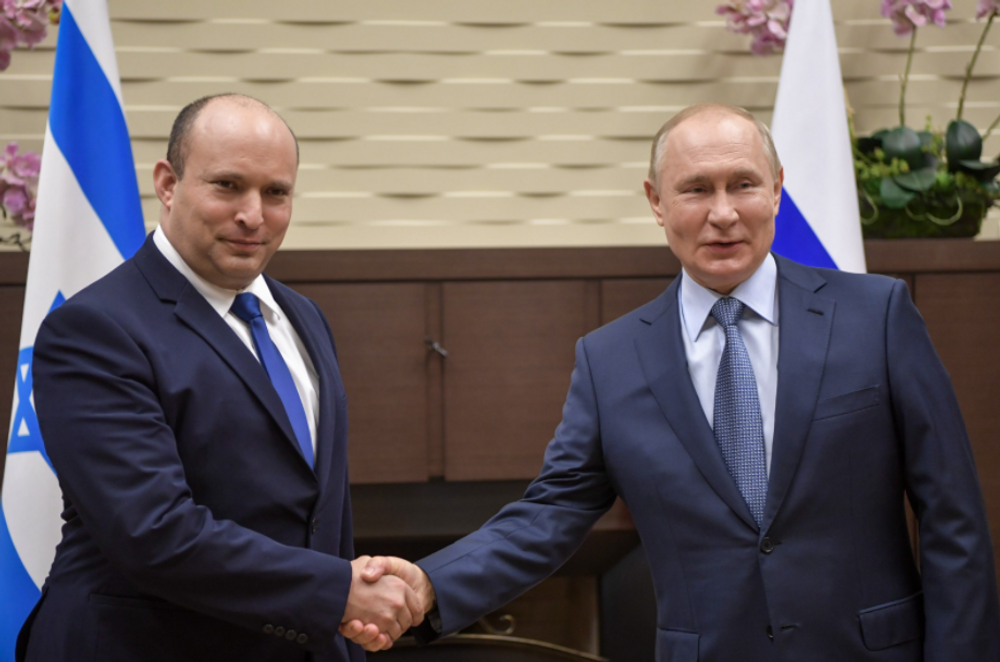
Let us list only the most famous rounds of sterile negotiations between the Russian and Ukrainian delegations. The first round took place on February 28, 2022, in Belarus. A second and third round of talks took place on 3 and 7 March 2022, on the Belarus–Ukraine border, in an undisclosed location in the Gomel region of Belarus. A fourth and fifth round of talks were respectively held on March 10 and 29 2022 in Turkey. In addition, the Kremlin repeats like a mantra its willingness to sit down at the negotiating table for peace with Kiev. It's just that in today's conditions, when neither side is either victorious or defeated, it is hard to imagine a lasting peace.
Not to mention the Minsk agreements signed on September 5, 2014 and on February 12, 2015, which represent glaring and shameful failures of Russian diplomacy. It is precisely those maneuvers by Russia's enemies that have allowed the collective West to transform for eight years the almost non-existent Ukrainian army into a formidable military force. Putin later admitted that he had been deceived by his “Western partners”. But has anyone in the Kremlin heard of Sun Tzu? He said in his famous work “The Art of War” that “All warfare is based on deception”. Whoever does not do his lessons on time remains a loser.
4 partially liberated regions, the Putin-Shaman duet and “Adieu, Kherson!”
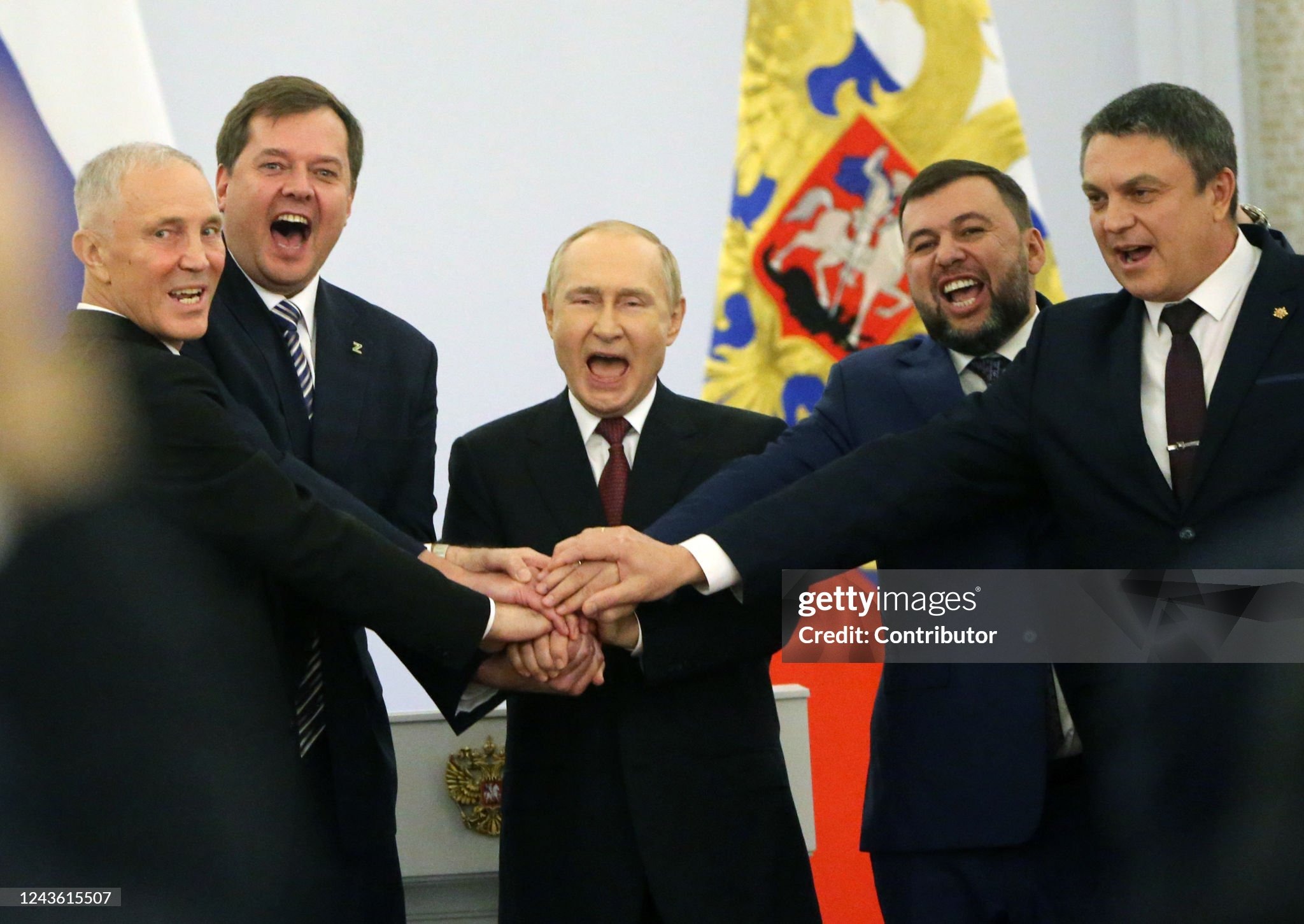
One of the most inexplicable things, in terms of Russian interests during this war, is the incorporation of four regions of Ukraine ― Donetsk, Kherson, Luhansk, and Zaporizhzhia ― on September 30, 2022, into Russia. It should be noted that this decision adopted by the State Duma of Russia and promulgated by Putin's decree was preceded by a mock referendum in the conditions of extremely violent military hostilities in all these four regions. We should recall that the simulation of referendums is the work of number 2 in the Putin administration, Sergey Kirienko (Izraitel), the ex-prime minister who in 1998 destroyed the financial system and the Russian economy, the most dubious character around the Russian head of state being responsible for the “liberated territories”. None of the regions were fully under Russian control at the time of the official incorporation, nor have they been since.
After the Russian parliament “unanimously” adopted the admission of the four regions to the composition of the Russian state, and the head of state confirmed this decision, on the same day, September 30, 2022, a festive concert followed in Red Square named “People's Choice. Together forever”. [5] During this sinister farce, reminiscent of communist-era triumphalism, the key figure alongside Putin was a pop singer with the stage name of Shaman, dressed as a transgender and embodying the perfect hermaphrodite, who shouted Russia's national anthem. The moment was particularly emotional, especially considering that while Putin was shedding tears of happiness in central Moscow, Russian soldiers continued to fight and die in all four regions.
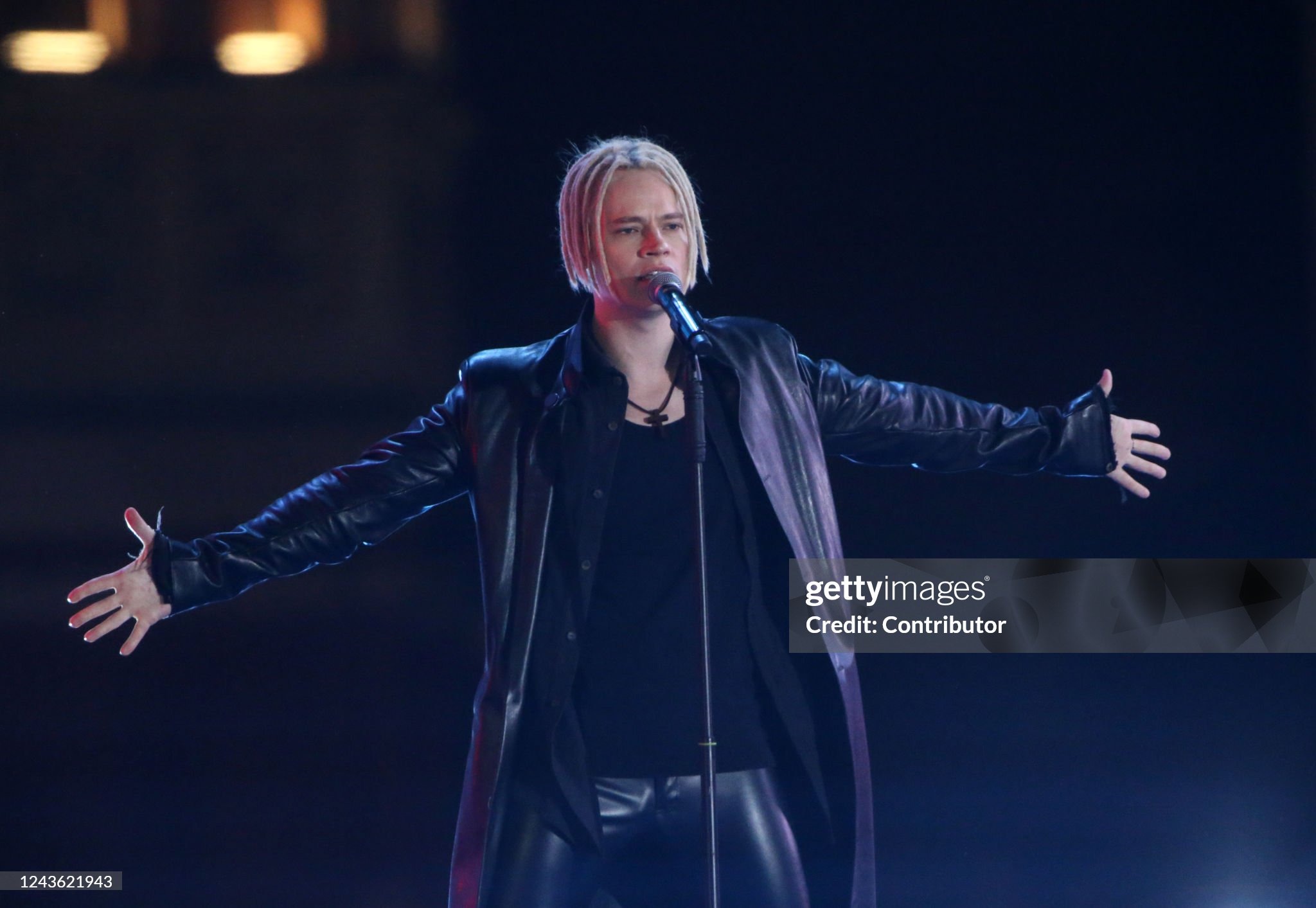
And what about the other millions of Russians abandoned in Ukrainian territories and terrorized by the criminal regime in Kiev? But such questions are prohibited in Russia. And in order for this abominable farce to have a shameful and degrading end, shortly after the show featuring the Putin and Shaman duet, the Russian army undertook another strange action of abandonment, this time of a strategic redoubt conquered with the blood of the Russian soldier. On November 9, 2022, Russian armed forces withdrew from the city of Kherson, abandoning the civilian population and pro-Russian activists to the hands of Ukrainian repression forces.
What's next? Uncertainties and hopes
During the two-year war euphemistically called a SMO, independent military experts repeatedly declared that the Russian Army could not wage a victorious war because it was hindered by the political factor. And some who criticized the way the military intervention in Ukraine is proceeding, calling for more decisive action, ended up in prison. The most famous case is that of Colonel Igor Strelkov, arrested for ”calls to extremism“. The details of his prison sentence will be announced on January 25th. But in Russia, no one can criticize the military campaign, neither from pacifist positions nor from patriotic ones. The Penal Code was adapted to repress any critical comment on state power.
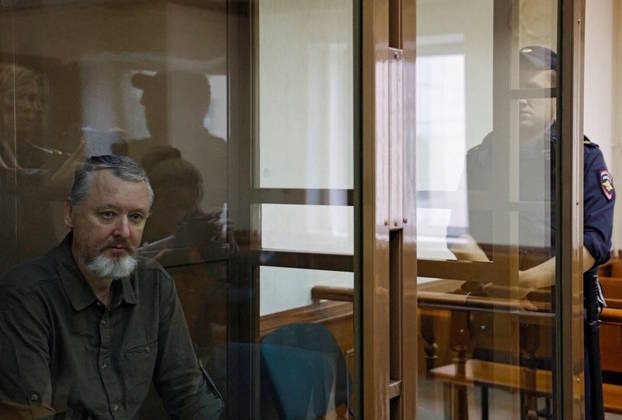
Meanwhile, the lack of consistency and courage of the Putin administration has caused hundreds of thousands of victims on both sides, over 10 million refugees, and the destruction and criminalization of Ukrainian society, but also the destruction of the EU economy in the interests of the enemies of continental Europe and Russia, by the Anglo-Saxon corporatocracy.
Given what is presented in Roberts' article, as well as my own analysis, we have every reason to worry not only about the fate of Russia, but also about the fate of all humanity. Strictly speaking, the strength of the Putin administration is reduced to the annihilation of all political opponents and its critics, as well as to the perpetuation of its own power through electoral farces like the one planned for this year, when the “fatal candidate” Putin will get another presidential mandate for his entire life.
So, in the face of the neoconservative/Zionist hawks who are very determined to subjugate the entire world or destroy it in a new world war, Putin's lack of will and vacillating character is a not inconsiderable vulnerability.
Some might be tempted to explain the slowness and lack of determination of Russia's leaders by the fact that they are quite advanced in age, representing a kind of gerontocracy. But those from Washington are not young either. And yet, metaphorically speaking, the Elders of Zion (such as Netanyahu, Blinken and Nuland) seem to be much more efficient than the Elders of the Kremlin (such as Putin, Lavrov and Shoigu).
